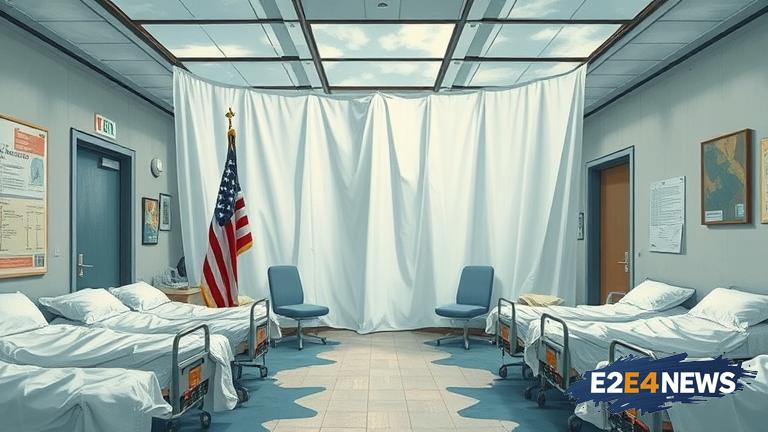A recent investigation has revealed that federal officials are not making medical rehab hospital inspections public, raising questions about the transparency and accountability of these facilities. The inspections, which are conducted by state agencies on behalf of the Centers for Medicare and Medicaid Services (CMS), are meant to ensure that hospitals are providing safe and effective care to patients. However, the results of these inspections are not being made available to the public, making it difficult for patients and their families to make informed decisions about their care. This lack of transparency is particularly concerning for medical rehab hospitals, which provide critical care to patients recovering from injuries or illnesses. The inspections are designed to identify potential safety hazards and quality of care issues, but without access to the results, patients are left in the dark. The CMS has stated that the inspection reports are not publicly available due to concerns about the accuracy and completeness of the data. However, patient advocacy groups argue that this lack of transparency is unacceptable and that patients have a right to know about the quality of care provided by these facilities. The issue has sparked a heated debate about the balance between patient safety and the need for transparency in healthcare. Some argue that making inspection reports public could lead to unnecessary panic and harm to hospitals’ reputations, while others believe that transparency is essential for driving quality improvement and ensuring patient safety. The investigation has also raised questions about the role of state agencies in conducting inspections and the CMS’s oversight of these agencies. Furthermore, the lack of transparency has led to concerns about the potential for hospitals to conceal substandard care and safety hazards. Patient safety experts emphasize that transparency is crucial for identifying and addressing quality of care issues, and that concealing inspection reports can have serious consequences for patients. The issue has also sparked calls for greater accountability and oversight of medical rehab hospitals, with some advocating for more frequent and rigorous inspections. Additionally, there are concerns about the potential for conflicts of interest and the influence of hospital lobbying groups on the inspection process. The investigation has highlighted the need for greater transparency and accountability in healthcare, and the importance of prioritizing patient safety and well-being. Ultimately, the concealment of medical rehab hospital inspections by federal officials has significant implications for patient care and safety, and underscores the need for greater transparency and oversight in the healthcare system.
